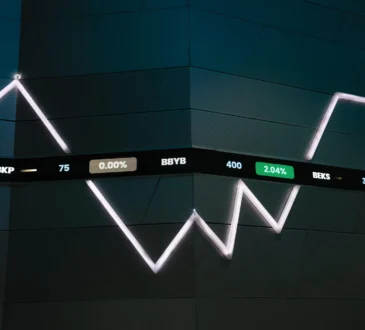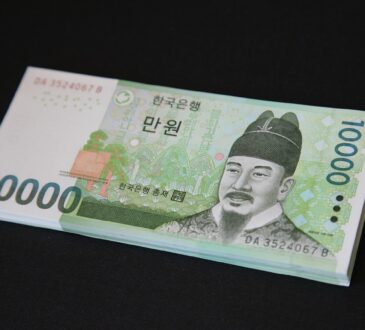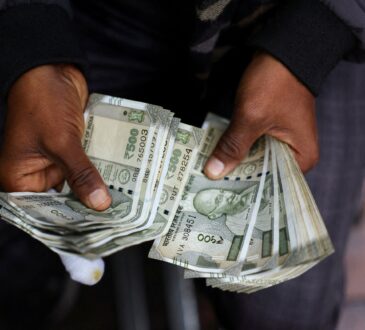
If you are running an international business from Morocco — whether exporting goods to Europe, importing raw materials from South America, or you are just a freelancer working for clients all around the world — you’ll face a lot of roadblocks with the traditional banking system.
There are several reasons why. First of all, the traditional banking system is outdated, and sending and receiving payments across currencies is a hassle. You need to sign multiple documents, face frustrating delays and hefty conversion fees. Traditional banks give you unfavorable exchange rates, meaning less money lands in your business account.
The solution? Online digital platforms, which have revolutionized international money transfers. They’ve made the process cheaper, more convenient, and less nerve-wracking. That’s why more businesses are switching to multi-currency platforms.
What exactly is a multi-currency account?
Just as the name suggests, a multi-currency account allows businesses to hold, send, receive, and manage funds in different currencies from a single banking setup. The idea here is that you have one account on an online banking platform where you can hold multiple currencies.
Unlike the traditional banking system, where you must open a separate bank account for each currency (or be forced to convert it into Moroccan dirham immediately), businesses can manage different currency balances at the same time.
This means that you can receive USD, CAD, YEN, and any other currency you can think of, without being forced to convert to Moroccan dirham. Why does this matter?
This is crucial in the business world; when you open a multi-currency account, you do not have to pay big fees to banks, and you are not forced to convert. This means that businesses can save money and protect their assets against currency fluctuation.
Lastly, it makes the process much easier for businesses, and it is much cleaner for the books.
How multi-currency accounts make it easier for businesses
Multi-currency accounts are extremely helpful for businesses that deal internationally. Businesses not only avoid the headache of constantly converting currencies and setting up a complex system for international payments, but they also save money.
If you have a business in Morocco that receives international clients and pays them in various currencies, a multi-currency account is essential. You can hold those payments in the original currency and decide when you want to convert.
Businesses can avoid currency exchange fees, which may seem small, but can pile up very quickly. This is not the only way your business will save money: through converting currencies immediately you will get rid of unfavorable exchange rates.
Another important thing for Moroccan businesses is that they have clearer visibility of their cash flows across currencies. Rather than juggling separate bank accounts and wondering where your foreign income is, a multi-currency set-up gives you a clearer and simpler picture.
Businesses are always about managing risk, and a multi-currency account can help them. Let’s say the euro weakens against the dirham. If you hold your euro revenue and wait for a better rate, you can optimize your conversion timing. On top of that, holding multiple currencies is a great way to diversify your asset portfolio and not worry about currency fluctuations too much.
Lastly, if you import goods or pay international suppliers in other countries, having a relevant balance (USD, for example) helps pay directly from that currency, rather than converting dirhams inefficiently.
Real-life impact for Moroccan businesses
Let’s say a digital agency in Casablanca has clients spread across France, Germany, and the U.S. With a multi-currency account, they receive payments in euros and dollars, hold them in those currencies, and convert at favorable times.
Transaction costs can also be lower, businesses diversify their currency portfolio, and they receive better flexibility.
Or think of a manufacturing exporter in Tangier who sells to Europe. The export income may arrive in euros. But instead of converting everything straight into dirhams and risking exchange rate shifts, the business holds some euro balance to address upcoming Euro-denominated expenses (logistics, packaging, overseas marketing) and improves cash-flow certainty.
These aren’t just simple advantages. Having a multi-currency account can help businesses establish a better international presence, save a lot of money, and simplify the process.
What to watch out for
Of course, having a multi-currency account doesn’t magically erase all challenges. Businesses must still pay attention to exchange-rate risk — just because you hold multiple currencies doesn’t mean you’re safe from market swings. Good financial policy means deciding when to convert, how much to hold, and when to pay suppliers or accept invoices in which currency.
Also, there may be banking or regulatory requirements. In Morocco, banks may require particular documentation or have rules about convertible currency accounts (for example, how they are funded and used). Understanding those conditions is important.
So, if you run a business in Morocco that deals on an international level, having a multi-currency account is a must. It is more than convenient; it can give your business the boost it needs, open new international doors, make the process simpler, and save along the way.




